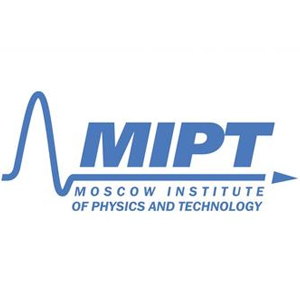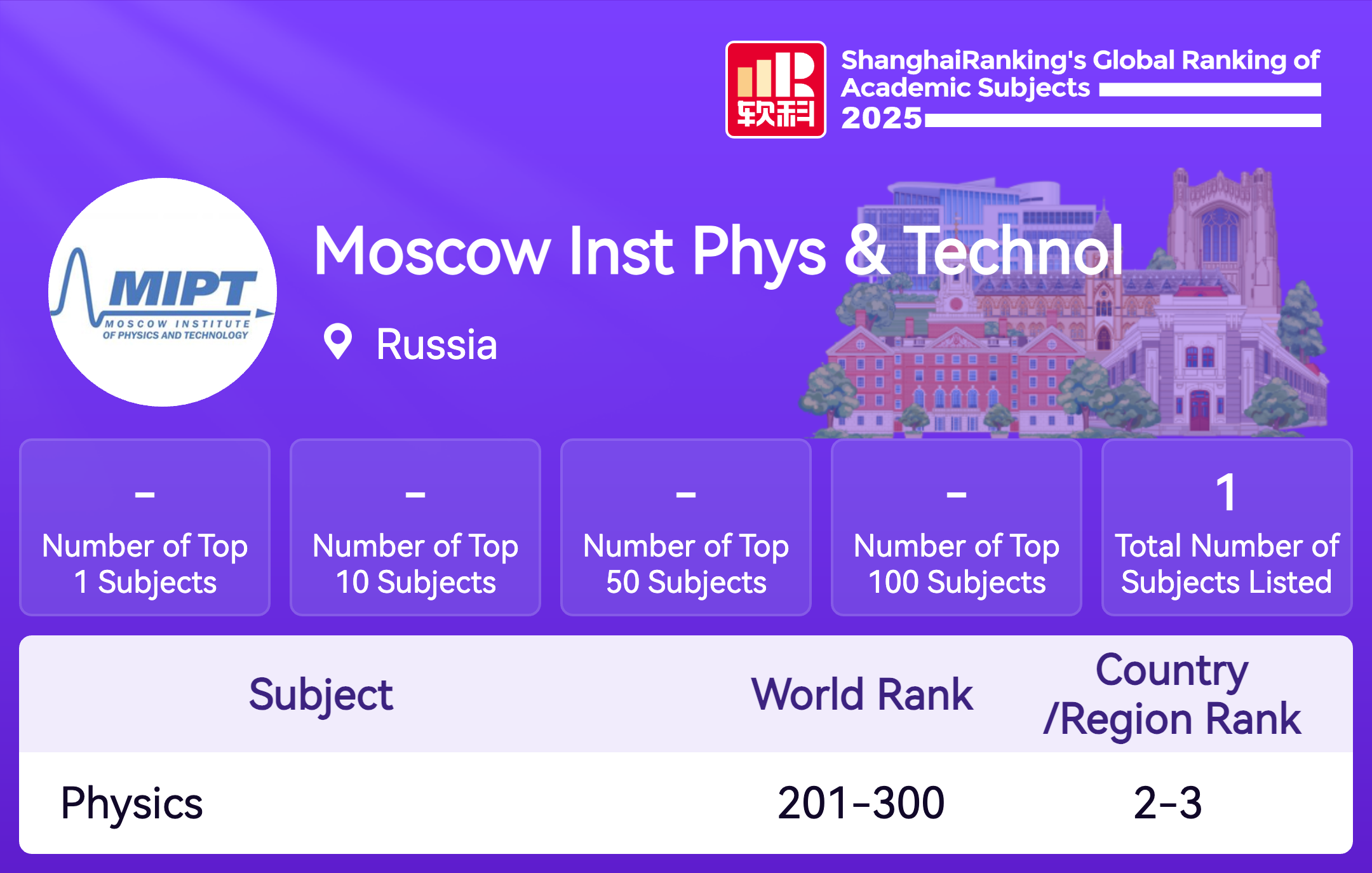 601-700
601-700 


MIPT at a glance Moscow Institute of Physics and Technology(MIPT) also known as“Phystech” is a young, dynamic and compact research university primarily focused on natural sciences and engineering. It has 3,300 undergraduate and 2,250 graduate students. Phystech was founded in 1951 as a public educational institution. Having the main campus at Moscow suburb «Dolgoprudny», MIPT is able to provide undergraduate students comfortable social environment for hard working toward undergraduate degrees. PhD and master degree students are conducting their research on the base of so-called "sub-campuses": 130 laboratories of the Russian Academy of Science and research divisions of leading industrial companies (like Yandex, Parallels, ABBYY etc.). Notable Alumni 1) In academia: a) 10 Nobel Prize winners; b) More than 100 members of the Russian National Academy of Science. 2) In industry: a) AlexanderAbramov – founder and chairman of «EvrazHolding», an international steel making and mining company; b) David Yang –founder of ABBYY, an international software company; c) Sergey Beloysov -founder of Parallels, ani nternational software company. Ranking Contemporaly world universities rankings are primarily based on citations and expert assessment reports. For a long time Phystech was closed for foreign visitors and the university never participated in international rankings. However, Phystech is regularly ranked as a leader among Russian research universities and as #2-#4 in all other national university rankings. Domestically Phystech is called, sometimes, as «the Russian MIT». Phystech is known, mainly in the states of the former USSR, due to its unique education - research model or "Phystech system". This system stars from the very selective admission process and very intensive 4-year bachelor programs enabling graduate students continue educational studies in research laboratories of Russian Ministers and the Academy of Sciences. Graduate students’ research is conducted outside of the main Phystech campus, and, therefore, research publications ruttenly are not affiliated to Phystech at all. Such an external labled educational system hides MIPT from the academic radar (that was an advantage during the Cold War). Structure Phystech’s unique approach to education and training is supported by well-developed infrastructure that encompasses the main campus and 130 education-research units at major R&D and academic institutions across Moscow and the Moscow region. The university employs (part-time) best sholars to teach at these institutions, located not only in Moscow, but also at national scientific towns (Dubna, Troitsk, Chernogolovka, Fryazino, Pronvino, Puschino, Sarov, etc.). Phystech degrees 1) Bachelor’s degree programs: a)Year 1/2 - theoretical studies (100%); b) Year 3/4 - theory (70%) and practical (30%) based on research institute. 2) Master’s degree programs a) Year 1/2 – theory (50%) and practical (50%); b) Year 2/2 – practical (100%) at research institutes (partners of Phystech). 3) PhD degree programs (3-4years full-time study): a) Practical (70%) and theoretical (30%) research based on collection and analysis of data during the program's duration. Phystech advantages: 1) Highest applicants score among 1,100 Russian Universities under Russia’s Unified State Exam (USE) – 92 of 100 (USE was introduced by the Ministry of Education to replace high school exited exams. The results of subject tests are used to enter most Russian universities). 2) During the last decade, approximately 1,500 Phystech alumni (25%) moved overseas to get PhD degrees at world-class universities such as MIT, Harvard and Caltech, among others.The Houston space center targets Phystech undergraduate students. 3) In 2009, following a Russian Government initiative to improve the education sector, Phystech obtained a status of the National Research Universityone of 29 universities who are considered to be leaders of the Russian education sector. 4) Fluency in English is typical for students and academic staff which make communication with international partners easy. 5) Phystech professors are ready to share many courses on the free of charge basis, and will allow them to be delivered at partner universities.
 601-700
601-700 
| Subject | Rank |
|---|---|
Physics | 201-300 |

